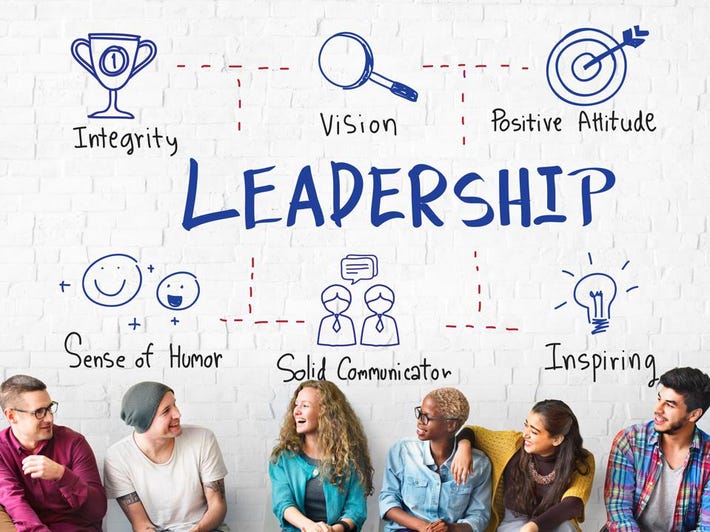Leadership skills are critical for success in almost any field or industry and are highly sought after by employers. Whether you’re pursuing a career in management or medicine, you will need to demonstrate effective leadership qualities to advance. After all, leaders who possess the necessary skills can build a strong team, execute effective strategies, manage resources effectively, and overcome complex challenges and uncertainties.
However, to effectively develop leadership skills gaining higher education is essential. Some leadership skills can indeed be developed through experience and on-the-job training. But higher education provides a unique environment for individuals to acquire the knowledge, skills, and attributes necessary to become effective leaders. Higher education allows students to learn from experienced professors and industry professionals, engage in hands-on projects and case studies, and network with other aspiring leaders. Through these experiences, students can develop the confidence, knowledge, and skills necessary to succeed as leaders in their chosen fields.
Here are five critical leadership skills only higher education instills.
1. Communication skills

Communication skills are one of the most critical skills for effective leadership. However, effective communication is often a skill found in a few individuals. But you can be amongst them by pursuing higher education as it can be instrumental in developing communication skills. Regardless of what you’re studying, you will have to interact with people throughout your course through written and oral communication. Higher education courses offer activities for students to hone their communication skills. For instance, you will conduct presentations, communicate with team members for projects, and engage in public speaking. In addition, you will also find yourself practicing business writing. Likewise, higher education not only teaches how to convey your ideas but also allows you to improve your listening skills, which are crucial for effective communication.
A higher education course such as a master of arts in education can allow you to gain exceptional communication skills essential for surviving in academia. This course offers you the opportunity to work and engage with a variety of different people to improve communication. More importantly, it focuses on other aspects of leadership, such as strategic planning. What’s best is that you can take this course online and learn at your own pace. So, enroll in higher education masters programs online and secure a bright future as a strong academic leader.
2. Collaborative skills
An important quality of an effective leader is the ability to collaborate with others and coordinate a team. As a leader, you will be expected to lead a group of people through effective collaboration and work towards a common goal. Higher education can help you succeed in such a situation by allowing you to develop and refine your collaborative skills. While gaining higher education, you often work with unfamiliar people for projects and other coursework. As a result, you will understand how to deal with people from different backgrounds and manage conflicts to achieve team goals.
Moreover, interacting and working with unfamiliar people will increase your intercultural awareness. It will help you manage different types of people in a team effectively in the future. Besides giving you hands-on collaboration experience, higher education will also help you understand how to set team goals, manage resources, and delegate tasks to collaborate effectively.
3. Creative and critical thinking

Leadership skills are not just about managing a team or communicating; it’s also about thinking outside the box and finding creative solutions to problems. A strong leader must always think outside the box and make critical decisions to achieve a goal. According to the World Economic Forum (WEF), critical thinking is expected to join the top 10 most important skills list by 2025. Higher education provides an excellent platform for individuals to develop these skills, which are crucial for effective leadership in the modern world. Students are exposed to various scenarios that require creative and critical thinking through various courses, projects, and assignments. They learn to analyze and evaluate information, identify patterns, and develop innovative solutions to complex problems.
For instance, students in higher education are often required to face real-world problems in case studies, research, and projects. As a result, they are forced to use their thinking capabilities to develop solutions. In addition to real-world research, higher education students improve their thinking skills through assessments and collaborative activities.
4. Ethics and integrity
Ethics entail the moral principles that guide behavior, while integrity refers to the consistency between actions and values. Effective leadership requires individuals to possess strong ethical and moral values and act with integrity. Higher education coursework can help you achieve high standards of ethics and integrity. Through various courses, projects, and assignments, students are exposed to a range of ethical dilemmas and learn how to approach them principally and thoughtfully.
Higher education develops ethics and integrity by teaching students about ethical theories and principles. Courses in philosophy, ethics, and social sciences introduce students to various ethical frameworks, enabling them to think critically about ethical issues and develop their moral compass. Furthermore, students learn how to think critically about ethical issues and articulate their ethical principles by engaging in debates, discussions, and projects that challenge their values and beliefs. Finally, higher education also provides opportunities for students to learn from ethical role models, such as professors, mentors, and community leaders.
5. Adaptability

Adaptability is a critical skill every leader must possess in today’s rapidly changing world. Effective leaders must adapt to new technologies, markets, and social trends. It’s not surprising that a study showed that 65% of jobs require postsecondary education. Higher education plays an important role in developing adaptability skills in individuals. By exposing students to various experiences and challenges, higher education helps students develop the ability to adapt to new situations and learn from feedback.
One incredible way higher education helps improve individuals’ adaptability is by exposing them to diverse perspectives. For example, students engage with people from various cultures and study courses about different histories and traditions. It allows them to understand the world better and effectively adapt their thinking to new situations. Furthermore, higher education also provides opportunities for students to engage in experiential learning and internships. These experiences expose students to real-world situations and help them develop the ability to adapt to new environments and learn from feedback.
Conclusion
Higher education plays a vital role in developing essential leadership skills. Various coursework equips students with the mindset and skills they need to survive in their professional lives. Considering today’s competitive work environment, it’s crucial to gain higher education and improve your leadership skills for a successful career. So, continue your education and lead your professional life with success.









